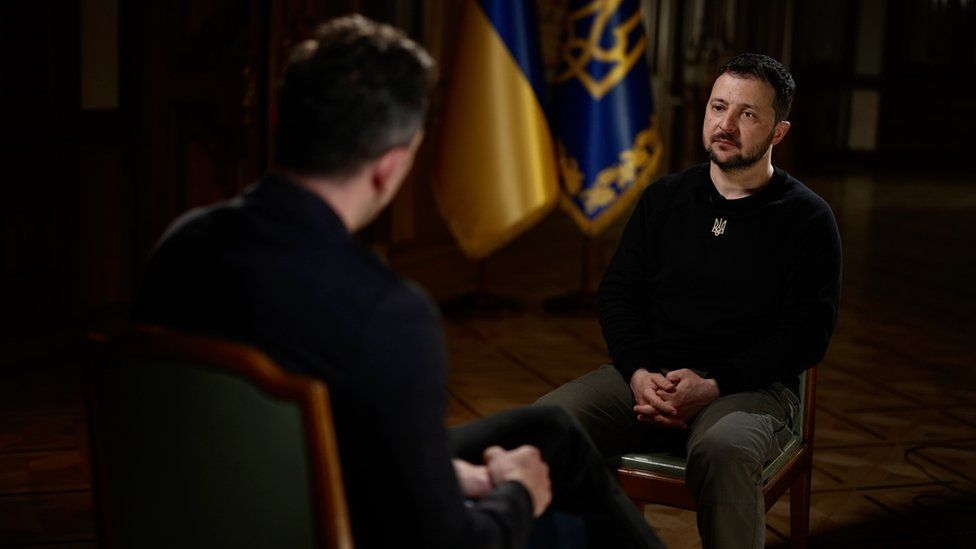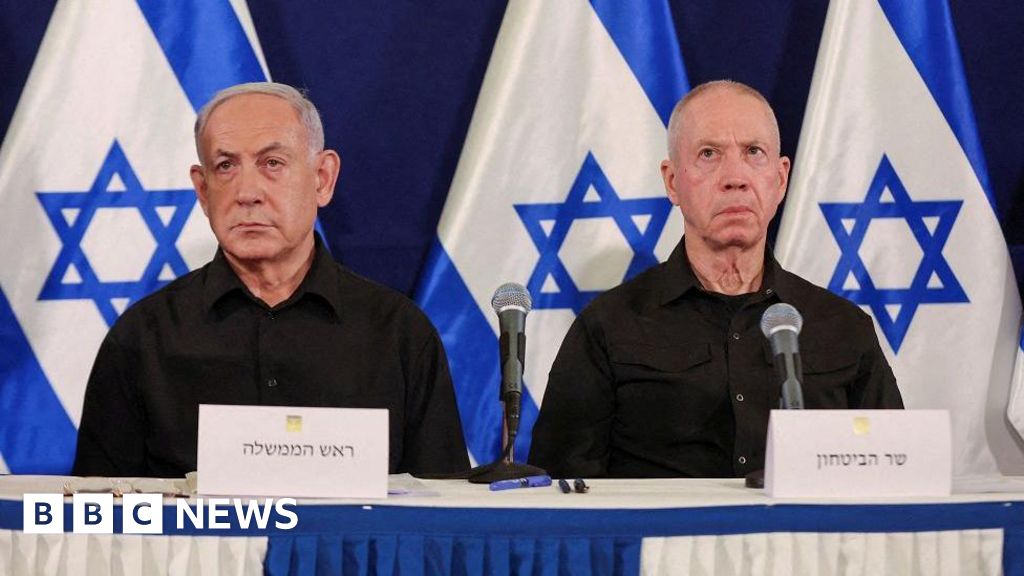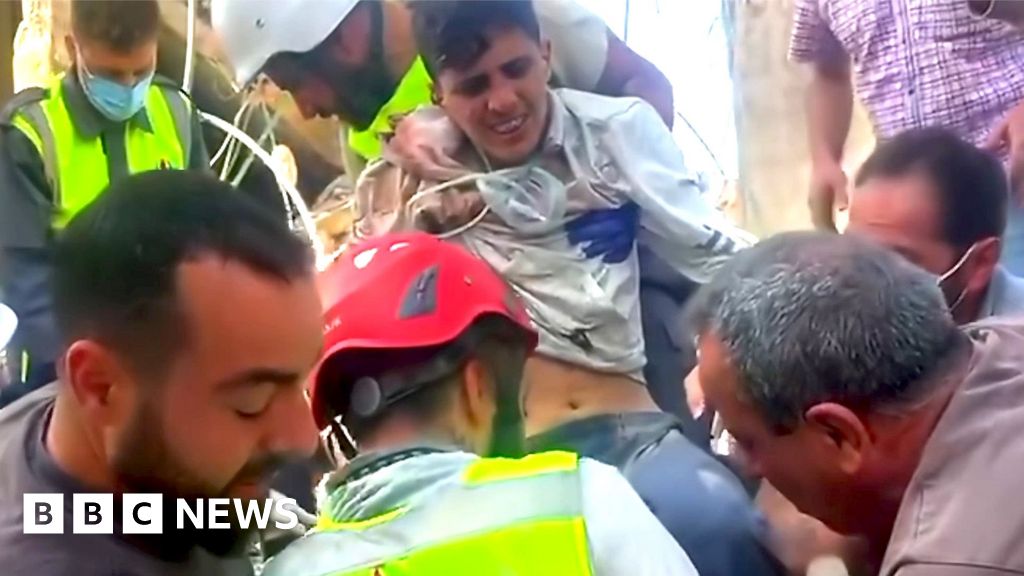ARTICLE AD BOX

President Zelensky made the comments in an interview at the presidential palace in Kyiv
By Hugo Bachega
BBC News, Kyiv
Ukraine's President Volodymyr Zelensky has said his country needs more time to launch a long-waited counteroffensive against Russia, as the military still needs promised Western aid.
The expected attack could be decisive in the war, redrawing frontlines that, for months, have remained unchanged.
It will be a crucial test for Ukraine, eager to prove the help has received can result in major battlefield gains.
"With [what we have] we can go forward and be successful," the president said.
"But we'd lose a lot of people. I think that's unacceptable," he said at his headquarters in Kyiv, in an interview for public service broadcasters who are members of Eurovision News, like the BBC.
"So we need to wait. We still need a bit more time."
The president described combat brigades, some of which were trained by Nato countries, as being "ready" but said the army still needed "some things", including armoured vehicles that were "arriving in batches".
When and where the Ukrainian push will happen is a secret. Russian forces have fortified their defences along a frontline 1,450km (900 miles) long which runs from the eastern regions of Luhansk and Donetsk to Zaporizhzhia and Kherson in the south.
In recent weeks, Ukrainian authorities tried to lower expectations of a breakthrough, both publicly and in private.
A senior government official, who spoke on condition of anonymity, said the country's leaders "understood that [they] needed to be successful" but that the assault should not be seen as a "silver bullet" in a war now nearly into its 15th month.
More on the War in Ukraine
The president, however, expressed confidence that the Ukrainian military could advance, warning of the risks of a "frozen conflict" which, he said, was what Russia was "counting on".
For Kyiv, any result that is seen as disappointing in the West could mean a reduction in military support and pressure to negotiate with Russia.
With nearly a fifth of the country under Russian control, and President Vladimir Putin declaring the annexation of four regions his forces partially occupy, this would possibly include discussions about land concessions.
"Everyone will have an idea," President Zelensky said. "[But] they can't pressure Ukraine into surrendering territories. Why should any country of the world give Putin its territory?"
Mr Zelensky dismissed fears about losing US support if President Joe Biden, who has vowed to support Ukraine as long as it takes, is not re-elected in 2024.
Ukraine, he said, still enjoyed bipartisan support in the US Congress. "Who knows where we'll be [when the election happens]?" he said. "I believe we'll win by then."
For now, there is no real possibility of talks to end the conflict, as both sides say they will fight until victory.
President Zelensky has offered a 10-point peace proposal, calling for the return of all invaded territory, reparation payments for war-related damages and the creation of a special tribunal to prosecute Russian war crimes, a plan that Moscow has flatly rejected.
Western sanctions, the president said, were having an impact on Russia's defence industry, mentioning depleted missiles stockpiles and shortages of artillery.
"They still have a lot in their warehouses but… we already see that they've reduced shelling per day in some areas."
Moscow, however, had found ways to bypass some of the measures, he said, and he urged countries to target those helping Russia circumvent the bans.
Mr Zelensky again rejected the Russian accusation that Ukraine was behind an alleged drone attack on the Kremlin last week, which was described by Moscow as an attempt to assassinate President Putin.
Watch: Ros Atkins on... the Russian social media videos appearing to show Kremlin drone attack
The Ukrainian leader said he believed the apparent attack could have been a false flag operation, carried out by Russia itself, and that the claim was being used as an "excuse" by Moscow to attack his country.
"They constantly look for something to sound like a justification, saying: 'You do this to us, so we do that to you,'" President Zelensky said.
"But it didn't work. Even for their domestic public, it didn't work. Even their own propagandists didn't believe that. Because it looked very, very artificial."
The president spoke as the Eurovision song contest was being held in the English city of Liverpool, which was chosen as a host on behalf of Ukraine, the winner of last year's event.
He said he would have preferred to see the competition in a neighbouring country "to where our people could travel to and be very close" but that he had "lots of respect" for Britain, an "amazing country".
"The main thing is that the contest is taking place," he said. "Let the people show their talent."
Additional reporting by Rachael Thorn, Hanna Chornous and Dave Bull

 1 year ago
25
1 year ago
25








 English (US)
English (US)